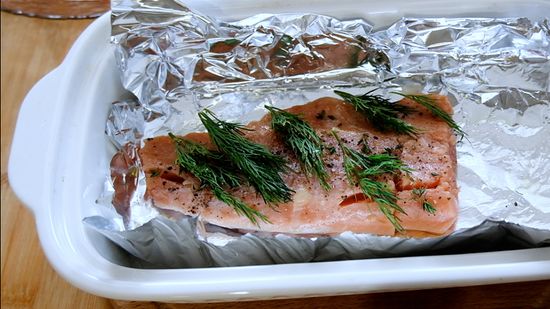Are Grilled Chicken Wings High in Cholesterol?
Introduction
Grilled chicken wings are a popular snack and appetizer that can be found in restaurants, bars, and at home cookouts. They are usually marinated in flavorful sauces and spices before being grilled, making them a tasty treat for many. However, as with most foods, it is important to understand their nutritional contents to make informed choices about what we eat. This article will delve into the cholesterol content of grilled chicken wings and its potential implications on our health.
What is Cholesterol?
Cholesterol is a type of fat (lipid) that is produced naturally by our bodies and is also present in certain foods such as meat, dairy products, eggs, and seafood. Our bodies use cholesterol to build cell membranes, hormones, and vitamin D. There are two types of cholesterol: low-density lipoprotein (LDL) cholesterol and high-density lipoprotein (HDL) cholesterol. LDL cholesterol is known as “bad” cholesterol because it can contribute to the formation of plaque buildup in the arteries that can lead to heart disease or stroke. HDL cholesterol, on the other hand, is known as “good” cholesterol because it helps remove LDL cholesterol from the arteries.
The amount of cholesterol that our bodies need varies by individual based on factors such as age, gender, weight, family history of heart disease, and lifestyle choices such as exercise habits and smoking status. The American Heart Association recommends a daily intake of no more than 300 milligrams (mg) of dietary cholesterol for healthy adults.
Nutritional Facts of Grilled Chicken Wings
A typical serving size of six grilled chicken wings (about 85 grams) contains approximately:
- 210 calories
- 15 grams of fat
- 16 grams of protein
- 0 grams of carbohydrates
- 4% of the daily recommended value of iron
- 2% of the daily recommended value of calcium
Understanding Cholesterol Content in Grilled Chicken Wings
When it comes to determining the cholesterol content in grilled chicken wings, it is important to consider the preparation and cooking methods. Two factors that can influence the amount of cholesterol in chicken wings are the chicken’s diet and how it is cooked. Chickens that are raised on a diet rich in omega-3 fatty acids (such as flaxseed) have been shown to have lower levels of LDL cholesterol in their meat compared to chickens raised on a standard grain-based diet. In terms of cooking methods, grilling has been shown to be a healthier option than frying as it does not require added fats or oils.
In general, 85 grams (about six pieces) of grilled chicken wings contain approximately 70 milligrams (mg) of cholesterol. This is less than a quarter of the recommended daily intake for healthy adults. However, if you are watching your cholesterol intake, it is important to consider other sources of dietary cholesterol throughout the day.
Relationship Between Dietary Cholesterol and Blood Cholesterol Levels
There is a long-standing debate over whether or not dietary cholesterol actually affects blood cholesterol levels. Some studies have suggested that consuming foods high in dietary cholesterol can raise LDL cholesterol levels, while others have found no significant impact. However, most research indicates that for the majority of people, dietary cholesterol does have some effect on blood cholesterol levels.
The American Heart Association recommends limiting dietary cholesterol intake to no more than 300 milligrams (mg) per day for healthy adults and 200 mg per day for those with high blood cholesterol levels or other risk factors for heart disease. If you are concerned about your cholesterol levels, it is important to speak with your healthcare provider about developing a diet and lifestyle plan that is appropriate for you.
Myths About Cholesterol in Grilled Chicken Wings
There are several common misconceptions about the cholesterol content in grilled chicken wings that have been perpetuated over the years. Here are a few of them:
- Myth: Grilled chicken wings are always high in cholesterol.
- Fact: While chicken wings do contain some cholesterol, the amount varies depending on the preparation, cooking method, and chicken’s diet.
- Myth: All types of fat are bad for you.
- Fact: Our bodies need some types of fat (such as monounsaturated and polyunsaturated fats) for optimal health. It’s important to focus on consuming healthy fats in moderation and limiting intake of unhealthy fats (such as trans fats).
- Myth: Cutting out all sources of dietary cholesterol is necessary to maintain good health.
- Fact: Our bodies need some dietary cholesterol to function properly. It’s more important to focus on consuming a healthy, balanced diet with plenty of fruits, vegetables, whole grains, lean proteins, and healthy fats than it is to eliminate all sources of dietary cholesterol.
Health Benefits of Grilled Chicken Wings
Despite their reputation as an indulgent snack food, grilled chicken wings can provide several nutritional benefits when consumed in moderation as part of a balanced diet.
One of the main benefits of grilled chicken wings is their protein content. A serving size of six wings contains approximately 16 grams of protein, which can help promote muscle development and repair. Additionally, they are low in carbohydrates, making them a good snack option for those trying to manage their weight or control their blood sugar levels.
Grilled chicken wings can also be a good source of micronutrients such as iron and calcium. Iron is important for oxygen transport in the body and calcium is essential for strong bones and teeth.
Health Risks of Consuming Grilled Chicken Wings
While grilled chicken wings can provide some nutritional benefits, they can also pose health risks when consumed in excess or when prepared with added fats, oils, or salt.
One major concern with eating too many chicken wings is their high saturated fat content. Saturated fats have been linked to increased levels of LDL cholesterol and an increased risk of heart disease. Additionally, commercial sauces used for marinating or dipping chicken wings can often contain added sugars and salt, which can contribute to high blood pressure and inflammation.
It is also important to consider the portion size and frequency of consumption when it comes to grilled chicken wings. Eating large portions of any food can contribute to weight gain and other health issues, especially if those foods are high in calories, fat, salt, or sugar.
Tips for Making Healthier Choices with Grilled Chicken Wings
Here are a few tips for making healthier choices when it comes to grilled chicken wings:
- Choose leaner cuts of chicken such as skinless breasts or thighs.
- Marinate chicken in healthy oils such as olive or avocado oil instead of commercial sauces that may contain added sugars and salt.
- Grill instead of fry chicken wings to avoid adding excess fats or oils.
- Eat smaller portions (such as three or four wings) rather than larger servings.
- Avoid consuming chicken wings on a frequent basis and focus on consuming a variety of nutrient-dense foods.
Conclusion
Grilled chicken wings can be a tasty snack or appetizer when consumed in moderation as part of a balanced diet. While they do contain some cholesterol and saturated fat, their nutritional content can vary depending on the preparation and cooking methods used. It is important to consider portion sizes, frequency of consumption, and how they are prepared when making choices about what we eat. By following some simple tips for making healthier choices with grilled chicken wings, we can enjoy them as a part of a healthy lifestyle.
Frequently Asked Questions
Are Grilled Chicken Wings High in Cholesterol?
1. Can consuming grilled chicken wings lead to high cholesterol levels?
Absolutely not! Grilled chicken wings are a healthy option that can be easily incorporated into your diet without worrying about the increase in your cholesterol levels.
2. How do grilled chicken wings compare to fried chicken wings in terms of cholesterol content?
Fried chicken wings are known to be significantly high in cholesterol due to the oil used during the cooking process. On the other hand, grilled chicken wings are a healthier option and have minimal impact on your cholesterol levels.
3. What makes grilled chicken wings a healthier option than other popular snack foods?
Grilled chicken wings are an excellent choice for a snack food because they are high in protein and lower in saturated fat than most other popular snack options such as chips and crackers.
4. Can grilled chicken wings be incorporated into a healthy diet plan?
Definitely! Grilled chicken wings are not only delicious but can also be a part of a balanced diet plan. Season them with healthy spices or herbs, and consume them with a side salad or some vegetables for a complete and nutritious meal option.






